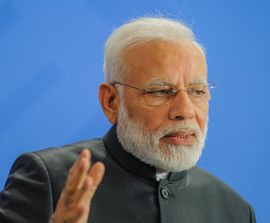Since July 2022, PM Modi has been attempting to drive a wedge between the Muslim community by underlining that 85 per cent of Muslims are lowly “pasmanda” and only 15% are elite “ashrafs” whom earlier governments appeased.
Back in 1973, Prof Imtiaz Ahmed of JNU edited his monumental magnum opus, Caste and Social Stratification among Muslims in India (expanded second edition in 1978), where he and his co-authors pointed out that caste “exists and functions among Muslims” and there is a “hierarchy among the Muslims” based on “deference structures, emphasising inequality of social status” despite the strong Koranic injunction to treat all human beings as equal. They highlighted the ‘Lal Begi’ scavengers as the bottom of the Muslim social ladder, and also found that “higher Muslim castes refuse to eat” with or marry the lower orders. They also emphasised “regional variations” (as with Hindu caste practice). The persistence of caste among Muslim converts, was attributed by Imtiaz Ahmed to the “acculturative influence of Hinduism”.
Yet, because the Gandhi-Ambedkar pact was limited to retaining scheduled castes in the Hindu fold, the Presidential Order of 1950 listed only Hindus among the scheduled castes. Muslim SC remain excluded to this day. Later, after Mandal, when salami-slicing of the OBCs led to a long list of OBC castes, largely based on traditional occupations, Muslims in the same “polluting” occupations were excluded from OBC categorisation—the most egregious example of which is Gujarati Muslim Modis who do not enjoy the categorisation of ‘teli’ (oil-pressers).
These anomalies were emphasised by the Sachar Commission which made more widely known the Muslim social stratification of Ashraf, Ajlaf and Arzal (the latter two jointly called pasmanda). In consequence, Dr Manmohan Singh’s second UPA government prepared an ordinance that would have included a pasmanda Muslim sub-quota in the OBC list, but this was stayed by the Supreme Court. If PM Modi is really so concerned with pasmanda Muslims, why has his government not sought a vacation of the stay in the last nine years or amended the SC list to include Muslim SC?
Moreover, it is almost entirely Muslim pasmanda who are the victims of lynching, 97 per cent of which have taken place after the Modi became PM. Why are sangh parivar goons encouraged to shout slogans like “Jab mulle kate jayenge, ‘Jai Shri Ram’ chillayaenge” (when the mullahs are slaughtered, they’ll scream Jai Shri Ram)? With, as the PM emphasises, 85 per cent Muslims being pasmanda, it is this 85 per cent that has been targeted (along with the much-excoriated 15 per cent) by sangh parivar-inspired jibes to “go to Pakistan”; controversies on hijab, aazaan, love jihad and namaz in public places; brutal crimes in the name of cow protection; bulldozer politics; razing of mosques; economic boycotts; films like The Kashmir Files and The Kerala Story; and the “exponential rise in hate speech” (Ziya us Salam in The Hindu of June 30).
The five main problems of the Muslim minority, including the 85 per cent pasmanda, are related to ‘identity’, ‘dignity, ‘security’, ‘agency’ and ‘representation’. There are only about 4 per cent Muslim Lok Sabha MPs now as against 8.3 per cent at Indira Gandhi’s second coming. Whatever the BJP may have done in fielding 61 Muslim candidates (out of thousands) in UP’s recent municipal elections, there is not a single Muslim Cabinet minister at the centre, no Muslim among the BJP’s 395 MPs in both Houses, and not a single Muslim candidate was even fielded by the BJP in recent state assembly elections to the 1,109 seats in UP, Gujarat and Karnataka! That is why Zia Us Salam decries the “invisibilisation of Muslims”, 85 per cent of whom are pasmanda.
Modi is ideologically opposed to recognising this despite the fact that he gives away gas cylinders for free without discrimination (while charging $1,195 for gas per cylinder—also without discrimination)!
Aiyar is a former Union minister and social commentator.


